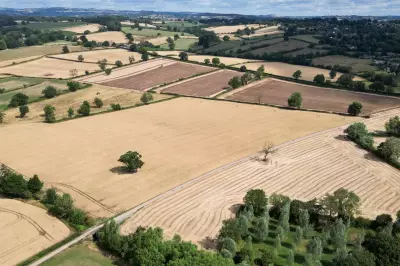
The Quiet Innovator Who Transformed Britain's Landscape
The United Kingdom's ecological landscape owes an immense debt to Donald MacIntyre, a pioneering botanist and farmer whose dedication to native wildflowers has left an enduring mark on the country's biodiversity. Through his groundbreaking work establishing Emorsgate Seeds and championing the use of native seed in wildflower mixes, MacIntyre, who passed away at 76, played an instrumental role in restoring natural habitats from meadows and farmland to parks and roadside verges on a national scale.
From Wasteland Seeds to Royal Warrant
Born in Salisbury, Donald MacIntyre was the son of an MOD aircraft engineer and test pilot, Donald Sr, and Mary Turner, who shared her passion for wildflowers with her children. After earning a BA in botany from Royal Holloway and a master's from Glasgow University, MacIntyre worked in plant breeding before his revolutionary venture began.
In 1980, with seed collected from wasteland and a loan from his father, MacIntyre leased Norfolk farmland to grow wildflower and grass seed. His timing proved fortuitous as the Nature Conservancy Council was conducting parallel research. Terry Wells, the NCC's research leader, provided MacIntyre with a crucial box of stock seed from various wild plants, which became the foundation of Emorsgate Seeds.
The breakthrough moment came in 1984 when the NCC offered MacIntyre a plot at North Meadow national nature reserve in Wiltshire. Faced with no established harvesting method, MacIntyre developed prototype harvesters, culminating in the first successful meadow brush harvester in 1986. This innovation, where seed is brushed into a hopper as the harvester moves across land, was rapidly adopted by county wildlife trusts and became standard practice in ecological restoration projects nationwide.
Expanding the Native Seed Movement
MacIntyre's vision extended beyond his business. In 1998, he co-founded Flora Locale, an organisation dedicated to promoting native seed in wildflower mixes. Two decades later, he became a founding member of the European Native Seed Producers Association (ENSPA), established in 2018.
First and foremost a farmer, MacIntyre cherished working the land throughout the year, continually developing machinery and methods to enhance seed sowing, harvesting and storage. His generosity with knowledge made him a valued mentor to ecologists and land managers. His comprehensive guide, Restoring the Wild: A Guide to the Restoration, Creation and Management of Meadow and Other Wild Vegetation, was published in 2024, cementing his legacy.
The recognition of his company's excellence came in 2014 when Emorsgate Seeds received a Royal Warrant, acknowledging its status as a leading supplier of native wildflower and grass seed.
A Personal Legacy Beyond Botany
MacIntyre was married three times, first to Annette Pinner, then to Adrienne Hill, with both marriages ending in divorce. In 2009, he married horticulturist Jane Lipington, who worked alongside him at Emorsgate. Together they bred shire horses at their farm near Bath.
He is survived by Jane, his four daughters from his second marriage - Mischa, Marsha, Martha and Myrica - seven grandchildren, and his sister Anne.
Donald MacIntyre's life work demonstrates how one individual's dedication to native seed propagation can fundamentally transform a country's approach to conservation and biodiversity restoration, leaving landscapes richer for generations to come.





